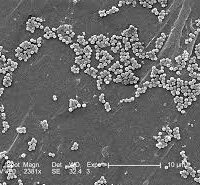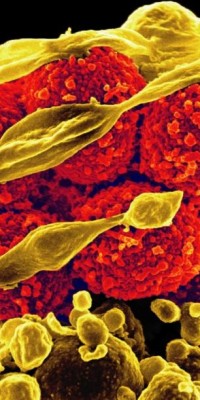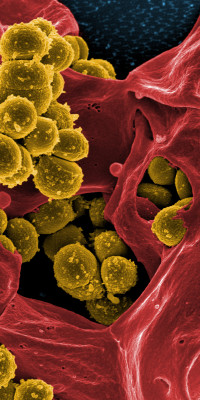Gentamicin, methicillin-resistant Staphylococcus aureus, better known as MRSA, is a bacteria that is resistant to many antibiotics. MRSA is responsible for several difficult-to-treat infections in humans from sepsis, to pneumonia, to bloodstream infections. MRSA is prevalent in hospitals, prisons, and nursing homes, where people with open wounds, invasive devices such as catheters and weakened immune systems are at greater risk of nosocomial infection.
Transmission:
MRSA is extremely contagious and is spread through skin-to-skin contact or contact with an infected object or surface. MRSA also affects livestock populations. Those especially at risk include:
- People with indwelling implants, prostheses, drains, and catheters
- People who are frequently in crowded places, especially with shared equipment or skin-to-skin contact
- People with weak immune systems
- Diabetics
- Intravenous drug users
- The elderly
- Sharing sports and other equipment
- College students living in dormitories
- People staying or working in a healthcare facility for an extended period of time
Symptoms:
S. aureus, along with similar species that can colonize and act symbiotically but can cause disease if they begin to take over the tissues they have colonized or invade other tissues, the effect can be disastrous. After 72 hours, MRSA can take hold in human tissues and eventually become resistant to treatment. Symptoms of MRSA infection include:
- Small red bumps that resemble pimples, spider bites, or boils
- Fever
- Rashes
- Bumps become larger and more painful; they eventually open into deep, pus-filled boils




